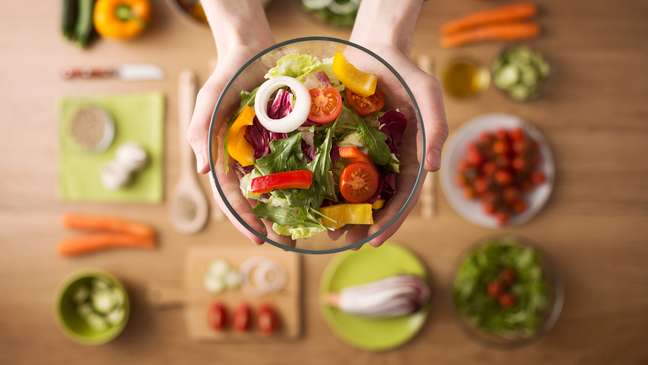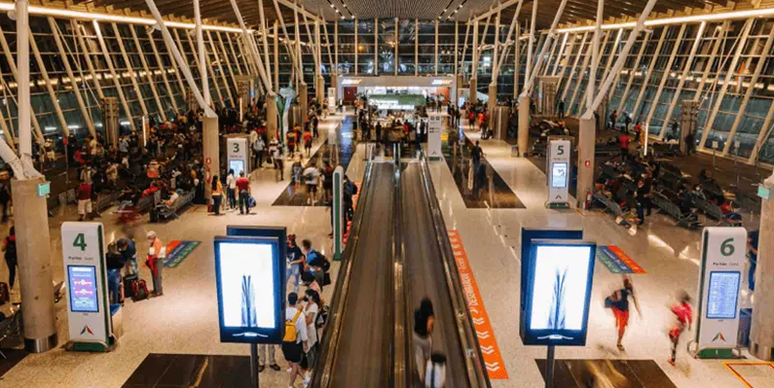Dr. Murillo Favaro explains: Known as our second brain, understanding how the gut affects our quality of life
Our gut is so important to our body that it is the subject of many studies and is called second brain. Intestinal pain due to inflammation, symptoms such as leaky gut or trapped intestine are detrimental to our quality of life.
And not only that, when we have an inflamed gut, it means that our population of protective bacteria residing there is out of balance. This imbalance is responsible for numerous systemic inflammatory diseases, i.e. diseases outside the intestine, in the rest of our body. If you are looking for quality of life and avoid numerous diseases, having healthy habits helps make our intestines healthier and, even if it seems obvious, we don’t always follow this rule.
Three pillars are needed for our intestines to function normally: iwater (liquids in general), fiber and physical activity. With the balance of these pillars, we will hardly have a gut that functions in a disordered way. So, even if you have an excellent fiber intake, if you don’t drink water or do not exercise, your intestines will not be efficient. The intake of approx. 2.5 to 3 liters of water per day it should be encouraged.
It is not easy to create this habit and not even remember to drink water these days. However, there are some tips that help insert it into everyday life, such as: carrying water bottles with you, using alarm clocks on watches or mobile phones and even apps to remind you of consumption.
In relation to fibersit is recommended to consume 25 grams per day, the ideal quantity to obtain the reduction of intestinal inflammation. However, the average consumption of fiber by Brazilians is 15 grams per day.

THE introduction of fruit between mealsswitching from processed foods to whole foods and increasing the consumption of plant-based foods such as vegetables, legumes, seeds, nuts and whole grains help achieve this.
Another tip for improving our gut is limit the consumption of red meat to a maximum of 4 times per week and, with this, increase the consumption of fish which, in addition to completing the weekly protein intake, will help relieve inflammation of the intestine. The chicken ends up being neutral; It doesn’t make inflammation worse, but it doesn’t deflate the intestines either.
In addition to the diet, there are cases in which it is necessary to ingest probiotics, that is bacteria that are protective of our intestine, to rebalance it. Physical activity should be carried out for at least 2-2.5 hours per week, generating a greater stimulus for bowel movement and with the aim of reducing intra-abdominal or visceral fat (the fat that surrounds the intestine and intra-abdominal organs), resulting in a decrease in inflammation, as well as protecting our cardiovascular system, preventing heart attacks, strokes (strokes), kidney failure, diabetes, hypertension, dementia, among others. Last but not least, we can’t forget another one bad for our intestines: smoking; therefore he should be encouraged to quit smoking. Now that you already know the importance of having a healthy gut and have learned how to do it, let’s put everything we’ve talked about into practice?
+The best content in your email for free. Choose your favorite Earth Newsletter. Click here!
Source: Terra
Benjamin Smith is a fashion journalist and author at Gossipify, known for his coverage of the latest fashion trends and industry insights. He writes about clothing, shoes, accessories, and runway shows, providing in-depth analysis and unique perspectives. He’s respected for his ability to spot emerging designers and trends, and for providing practical fashion advice to readers.






![Un Si Grand Soleil Preview: Episode Summary for Wednesday, October 29, 2025 [SPOILERS] Un Si Grand Soleil Preview: Episode Summary for Wednesday, October 29, 2025 [SPOILERS]](https://fr.web.img3.acsta.net/img/58/48/5848773b26761cb500901ca4a1395bb8.jpg)

